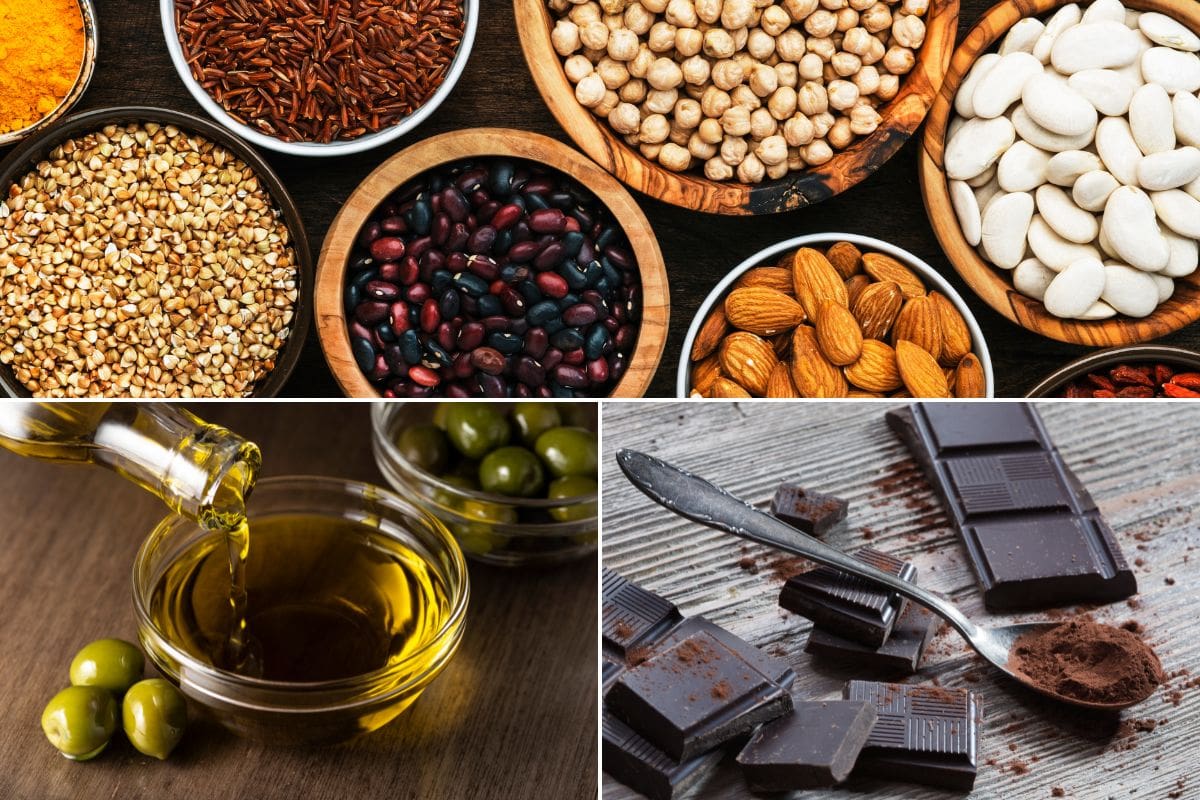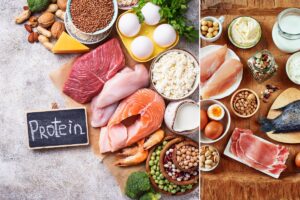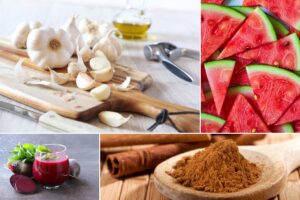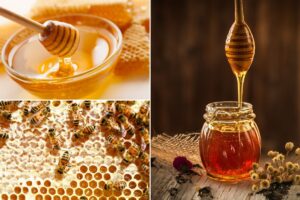Cholesterol and its associated molecules, particularly the high-density and low-density lipoproteins (HDL and LDL), play complex roles in your metabolism. When talking about a person’s general health, the level of LDL cholesterol is often an important health marker.
Also called “bad” cholesterol, LDL is the lipoprotein that transports cholesterol from your liver to your cells, which is a vitally important bodily function. However, high levels of LDL are also associated with an increased risk of heart disease.
Specifically, LDL can penetrate the artery walls, potentially contributing to the clogging of your arteries, known officially as atherosclerosis.
If this progresses too far, the artery may become obstructed entirely or a blood clot may dislodge, which could eventually result in a heart attack or stroke. It is, therefore, quite important to keep an eye on your overall cholesterol levels, especially LDL cholesterol and the ratio between LDL and HDL.
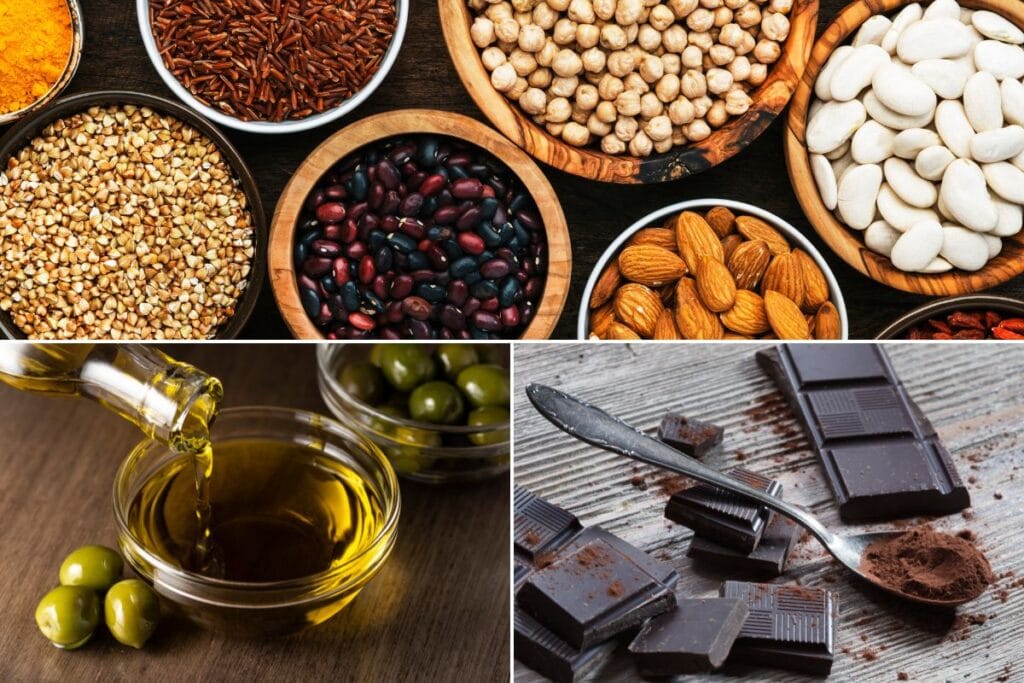
Foods That Lower LDL Cholesterol Levels
There are various foods that help you keep your LDL cholesterol at a healthy (low) levels, while they can also help you bring down those levels if they’re too high. Additionally, some of these foods may also help you increase your HDL cholesterol (the “good” cholesterol) and/or lower triglycerides levels.
There are four general types of food to look for, each with their own LDL cholesterol lowering properties.
Soluble Fiber
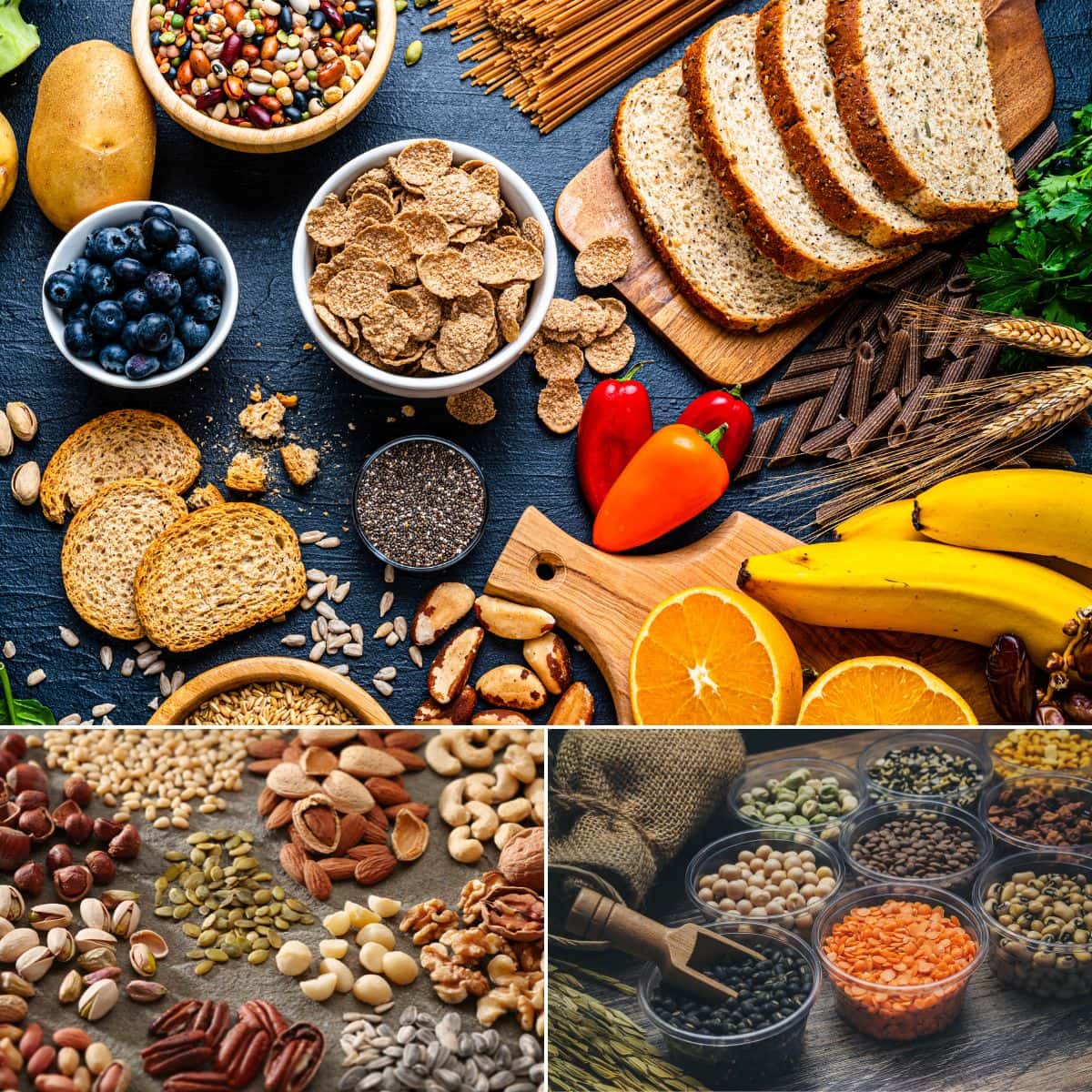
One of the best ways to lower high levels of LDL cholesterol is by consuming more foods that contain soluble fiber.
That’s because soluble fiber binds to cholesterol in your small intestine, preventing it from entering your bloodstream. It will then transport the cholesterol out of your body when you go to the bathroom.
Interestingly, however, soluble fiber does not affect your HDL cholesterol or triglycerides. So if you need to increase your HDL cholesterol or lower your triglyceride levels, you’ll need to also eat other foods that help you do that.
You’ll find soluble fiber in a variety of common foods, from oatmeal and other whole grains to beans, lentils, chickpeas, berries, apples and pears, sweet potatoes, broccoli, and chia seeds, among numerous others.
- Oatmeal
- Whole grains
- Legumes
- Fruits and vegetables
- Nuts and seeds
You can find many more great sources of soluble fiber here.
Polyunsaturated Fat
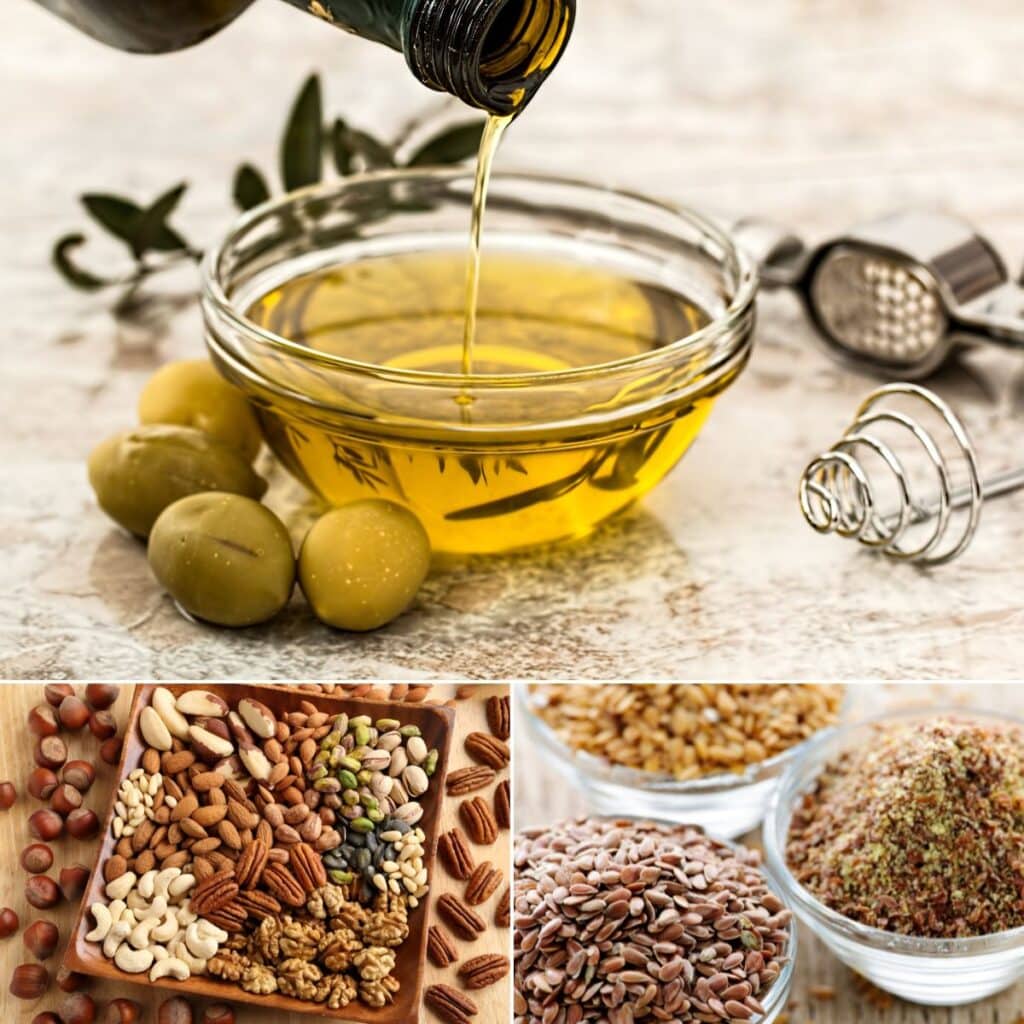
Polyunsaturated fats, also known as PUFAs, directly lower LDL cholesterol levels in your blood, thus helping to prevent heart disease and stroke.
Good sources of polyunsaturated fat include olive oil and nuts and seeds, such as walnuts, almonds, chia seeds, flaxseeds, and pumpkin seeds.
- Olive oil
- Nuts and seeds
Omega-3 Fatty Acids
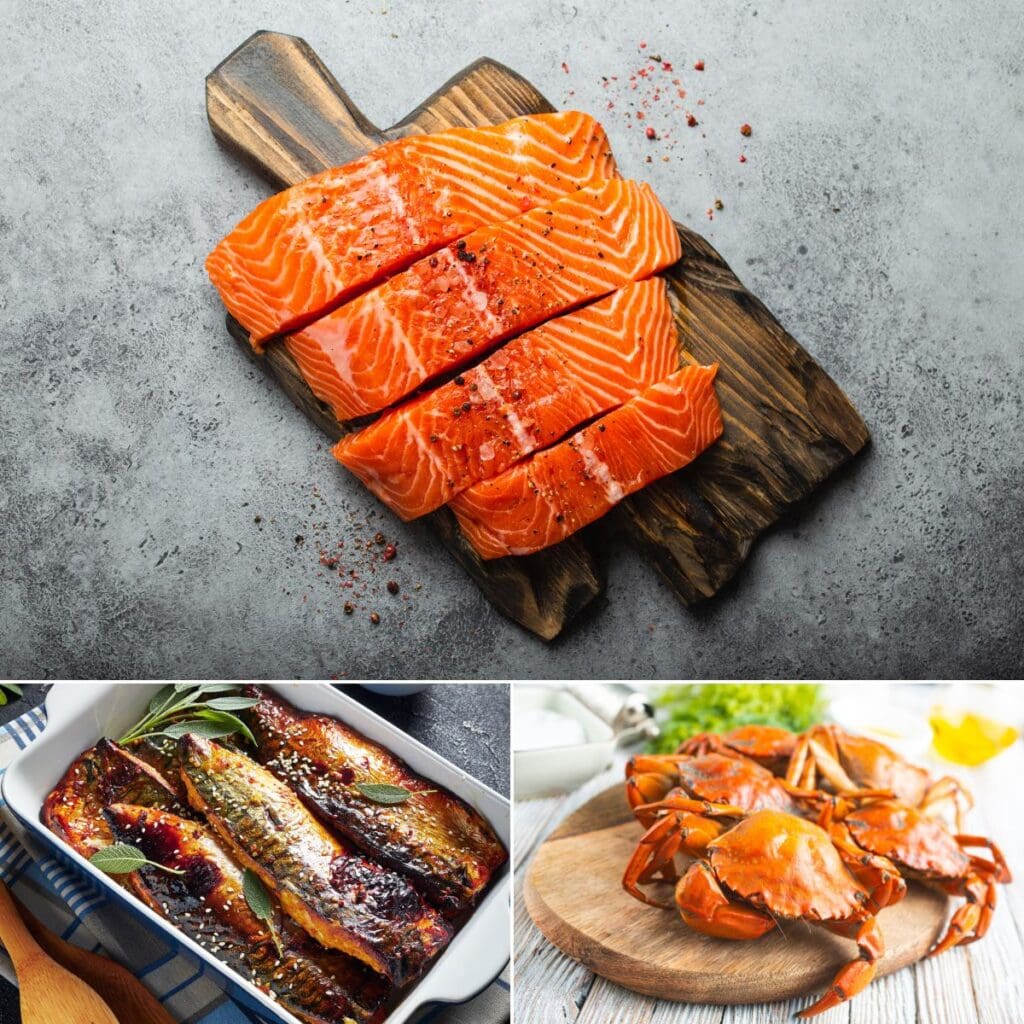
A specific type of polyunsaturated fat, omega-3 fatty acids do not directly affect LDL cholesterol levels, but they do help you lower triglycerides. They may also increase HDL cholesterol levels. Both have positive effects on your cholesterol balance and overall health.
The best sources of omega-3 fatty acids are fatty fish and shellfish, including salmon, mackerel, sardines, mussels, shrimp, crab, and lobster. Some nuts, seeds, and soy products also contain omega-3s.
- Fatty fish
- Shellfish
- Nuts and seeds
- Soy
Sterols and Stanols
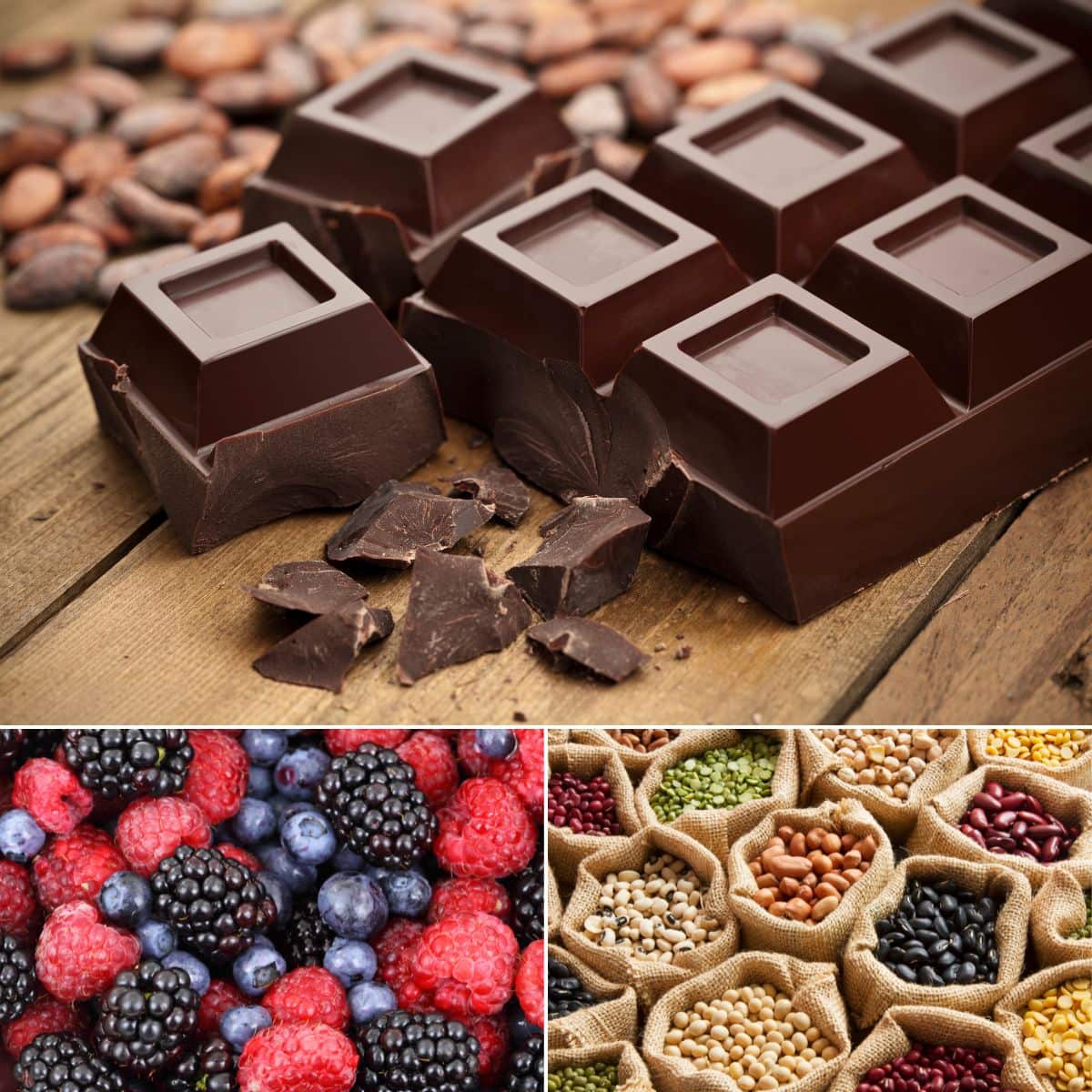
Both sterols and stanols have a molecular structure that’s similar to that of cholesterol. During digestion, they compete with cholesterol and block the body from absorbing it. This can help lower your overall cholesterol levels.
Excellent sources of sterols and stanols include dark chocolate (probably my favorite), blueberries, raspberries, strawberries and blackberries, other fruits, beans, lentils and chickpeas, and various nuts and seeds.
- Dark chocolate
- Legumes
- Nuts and seeds
- Berries and other fruits
Foods That Help Lower LDL Cholesterol
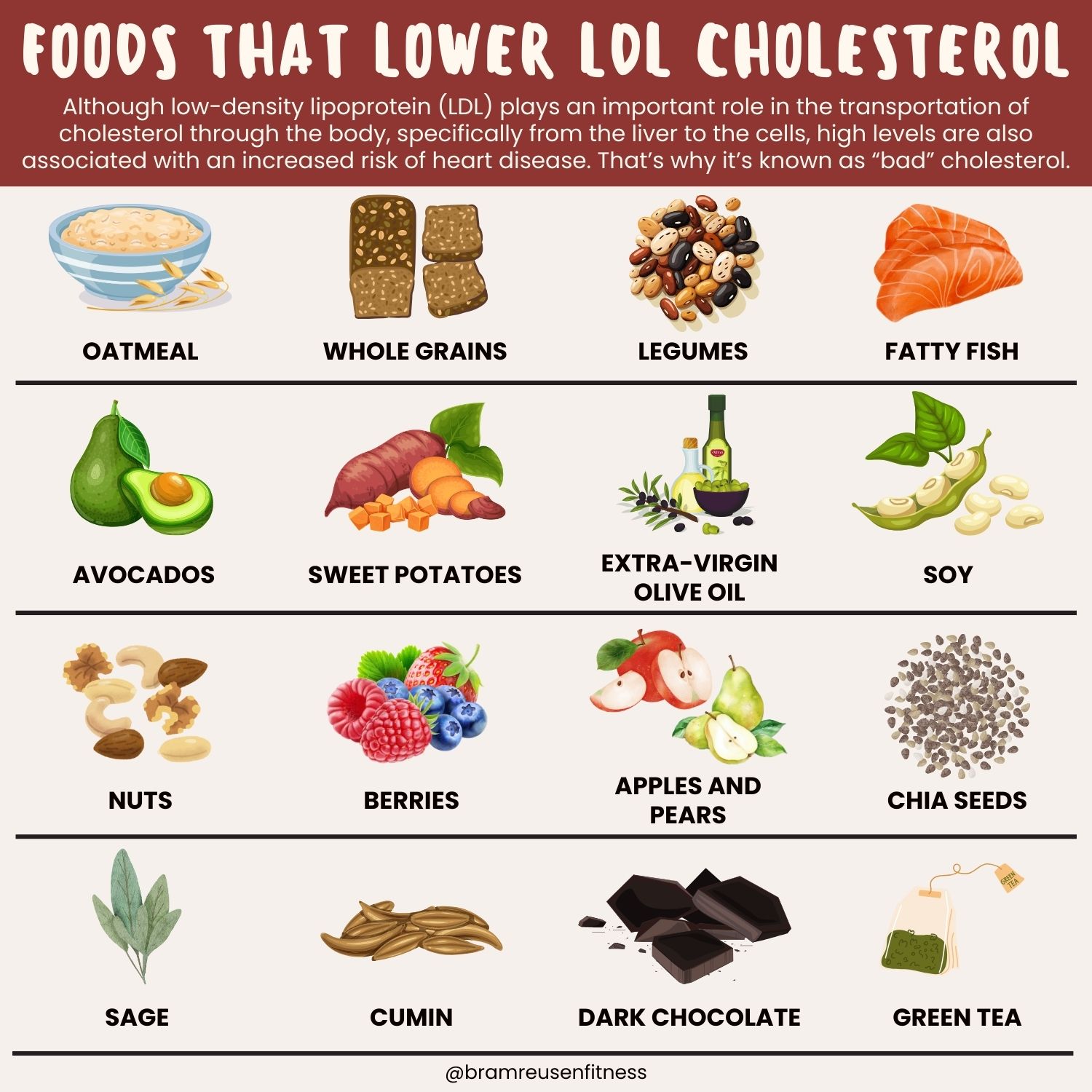
As you can see, you have plenty of options when it comes to foods that help lower your LDL cholesterol.
Try to incorporate more nuts and seeds, fatty fish, beans, chickpeas and lentils, berries, olive oil, and even dark chocolate in your diet—while also reducing saturated fat intake—and you’ll be on a path to healthier cholesterol levels!

